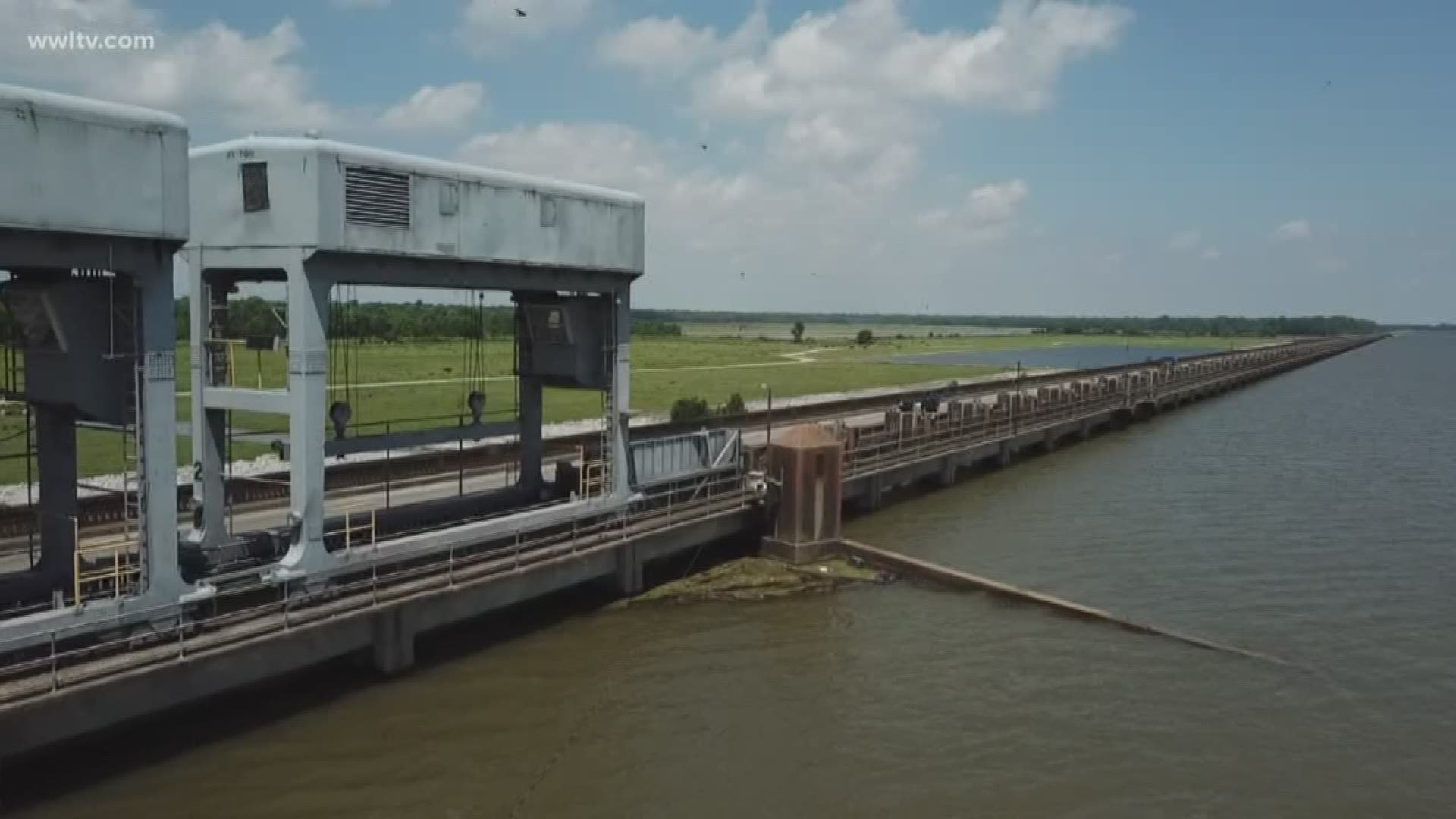Heavy rains, high river levels and a high flow of water will cause the Morganza Spillway to open on June 2, the Army Corps of Engineers announced Monday.
It will be only the third opening of the spillway since it was completed 65 years ago.
The Bonnet Carré Spillway is also currently open. It has already been opened twice this year – the first time in its history that it has opened more than once in a calendar year.
The Morganza Spillway opens when the Mississippi River reaches a speed of 1.5 million cubic-feet-per-second.
Heavy rains have recently fallen across the Central Mississippi River Valley, causing saturated grounds in parts of Kansas, Missouri, Iowa and Illinois. Extended weather forecasts show this same area could see another five to seven inches of rain over the next five days, which would drain into the Mississippi River.
The added water will keep the Mississippi River levels very high for the foreseeable future.
"The current flood fight is historic and unprecedented. Today marks the 214 day of the flood fight it is expected to surpass the 1973 event (225 days) as the longest flood fight," Army Corps. of Engineers Rickey Boyett said. "This flood is also the first time the Bonnet Carre’ Spillway has opened in back-to-back years as well as the first time it has been operated twice during the same calendar year."
The ground is very saturated across this part of the country, so any rain will just run off into the local rivers, including the Missouri and Mississippi. Extended weather forecasts show this same area could pick up an additional 5-7”+ of rain over the next 5 days. All of this additional water would also drain into the Mississippi River.

